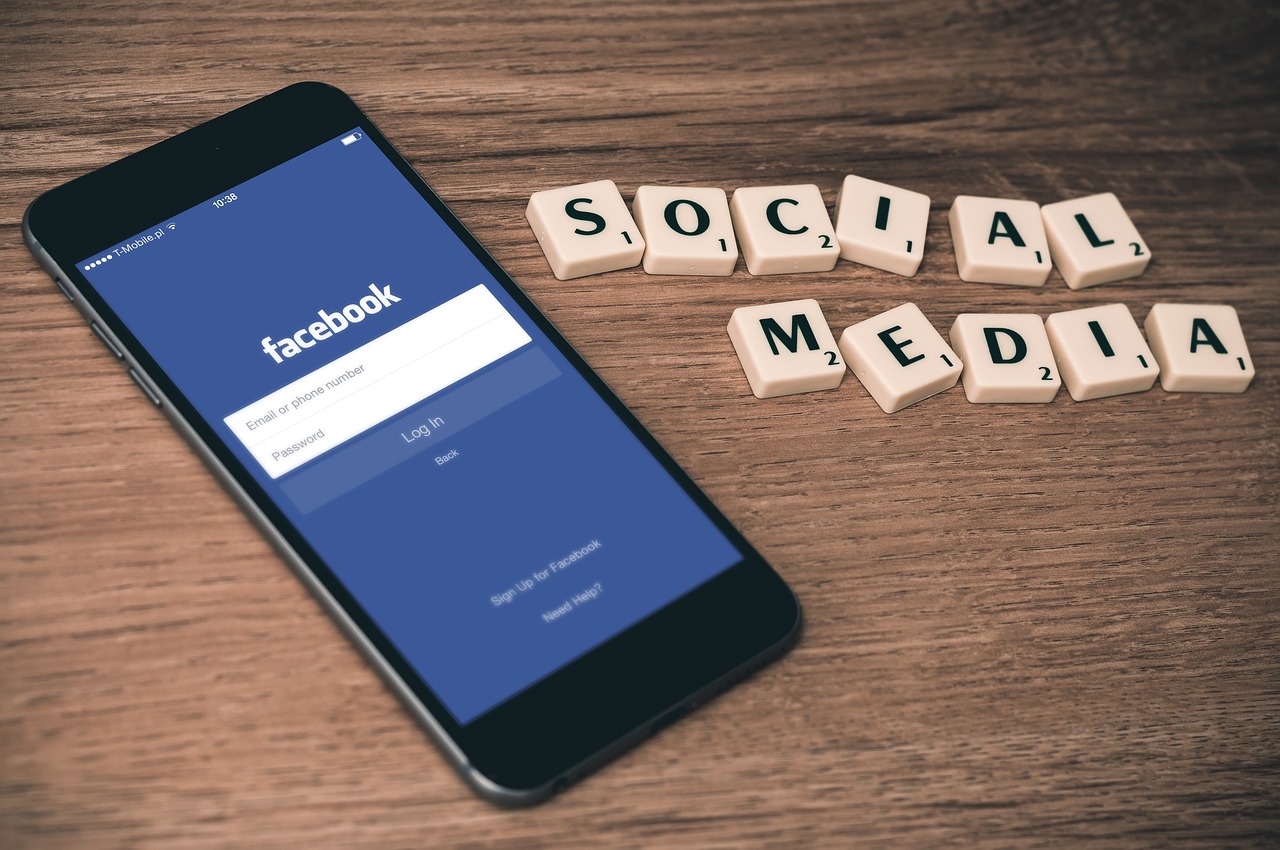In today’s digital era, social media has become an integral part of our lives, influencing not only our personal interactions but also our decision-making processes. However, amidst the vast information available at our fingertips, there lies a gray area when it comes to health claims made on social media platforms. With individuals and businesses alike using these platforms to promote various health products and services, it becomes crucial to understand the legal implications and potential risks associated with such claims. In this article, we will explore the world of social media health claims, shedding light on the legalities surrounding them and providing insight into the importance of seeking professional advice in navigating this complex landscape.
Understanding Social Media Health Claims
Social media has become a powerful tool that influences various aspects of our lives, including our health choices. With the rise of social media platforms and the increasing popularity of health and wellness trends, it is crucial to understand the impact that social media has on our health. This article will explore the influence of social media on health, the different types of social media health claims, the legal implications of such claims, common misconceptions and risks, best practices for consumers, the social responsibility of influencers and brands, legal remedies for false health claims on social media, cases of social media health claim violations, and frequently asked questions.

1. The Influence of Social Media on Health
1.1 Social Media and Health Trends
Social media platforms have become a breeding ground for health and wellness trends. Influencers and ordinary users alike share their experiences, anecdotes, and advice related to diet, fitness, and various health products and services. These trends can quickly gain popularity and attract a significant following, often influencing people’s choices and behaviors regarding their health.
1.2 Impact of Influencers on Health Choices
Influencers play a significant role in shaping public opinion and consumer behavior in the health and wellness space on social media. With their extensive reach and influential presence, they have the power to sway consumers’ choices when it comes to health products and services. However, it is essential to critically evaluate the credibility and expertise of these influencers before blindly following their advice.
1.3 The Role of Social Media Platforms
Social media platforms provide a platform for the dissemination of information related to health and wellness. However, they also have a responsibility to regulate the content shared on their platforms to ensure its accuracy and prevent the spread of misleading or false health claims. The policies and guidelines adopted by these platforms can significantly impact the way health information is communicated and consumed on social media.
2. Types of Social Media Health Claims
2.1 Misleading Claims
Misleading health claims on social media can be harmful and misleading to consumers. These claims often exaggerate the benefits of certain products or services or present them as a cure-all solution without sufficient scientific evidence. It is crucial for businesses and individuals to understand their legal obligations and refrain from making misleading claims that could potentially harm consumers’ health.
2.2 False Advertising
False advertising involves promoting products or services with misleading or deceptive information. On social media, false advertising can take various forms, such as using before-and-after photos to overstate the effectiveness of a product or making unsubstantiated claims about its benefits. Businesses must ensure that their advertisements are truthful, accurate, and backed by reliable evidence.
2.3 Unproven Products or Services
Social media platforms often host advertisements for products or services that lack scientific evidence to support their efficacy or safety. These unproven products or services may claim to offer miraculous health benefits without any basis in research or clinical trials. Consumers should exercise caution and consult qualified professionals before investing in such products or services.
2.4 Dubious Remedies
Dubious remedies refer to health solutions or treatments that lack scientific validity or have been proven to be ineffective. These remedies may include alternative therapies, pseudoscientific approaches, or conspiracy theories. Social media can amplify the promotion of these dubious remedies, spreading misinformation and potentially harming individuals who rely on these ineffective treatments.
3. Legal Implications of Social Media Health Claims
3.1 Regulatory Bodies and Guidelines
Regulatory bodies, such as the Food and Drug Administration (FDA) in the United States, have established guidelines that govern the advertising and promotion of health-related products and services. These guidelines aim to ensure that businesses and individuals make accurate claims and provide sufficient evidence to support their assertions. It is crucial for businesses to familiarize themselves with these regulations to avoid potential legal consequences.
3.2 Consumer Protection Laws
Consumer protection laws are designed to safeguard individuals from unfair or deceptive business practices. These laws require businesses to provide accurate information about their products or services and refrain from making false or misleading claims. Violations of consumer protection laws can lead to legal action, including lawsuits and hefty fines.
3.3 Advertising Standards and Regulations
Advertising standards and regulations vary across jurisdictions but generally aim to ensure that advertisements are truthful, accurate, and do not mislead consumers. Advertisers must follow these standards and regulations to maintain the integrity of their marketing efforts. Non-compliance can result in regulatory action, reputational damage, and financial penalties.
4. Common Misconceptions and Risks
4.1 Misinterpretation of Social Media Information
One of the risks associated with social media health claims is the misinterpretation of information by consumers. Social media posts are often concise and lack the necessary nuance to fully explain complex health topics. This can lead to miscommunication and misrepresentation of information, potentially leading individuals to make uninformed or misguided health choices.
4.2 Potential Health Risks
Following health advice from unqualified sources on social media can pose significant health risks. Misleading claims and unproven products can have adverse effects on individuals’ well-being, as they may delay effective treatment or lead to unnecessary expenses. Consumers should consult healthcare professionals and rely on evidence-based information before making health-related decisions.
4.3 Lack of Accountability and Oversight
Social media platforms often face challenges in monitoring and regulating the vast amount of health-related content shared by their users. This lack of accountability and oversight can allow misleading claims and false advertising to circulate unchecked, putting vulnerable individuals at risk. It is crucial for social media platforms to strengthen their content moderation efforts and provide users with reliable information.

5. Best Practices for Consumers
5.1 Evaluating Sources and Credibility
Consumers should critically evaluate the sources of health information they encounter on social media. It is important to consider the qualifications, credentials, and expertise of the individuals or organizations providing the information. Reliable sources should rely on scientific evidence and peer-reviewed research to support their claims.
5.2 Consulting Qualified Professionals
To make informed health decisions, consumers should consult qualified healthcare professionals. Physicians, dieticians, and other experts can offer personalized advice based on an individual’s specific needs and circumstances. They can help individuals navigate the wealth of information available on social media and guide them towards evidence-based practices.
5.3 Fact-checking and Researching Claims
Before believing or acting on a health claim shared on social media, consumers should fact-check and research the information independently. Reliable sources, such as reputable medical websites or research papers, can provide accurate and up-to-date information on various health topics. Additionally, fact-checking organizations can help individuals verify the accuracy of claims.
6. Social Responsibility of Influencers and Brands
6.1 Ethical Marketing Practices
Influencers and brands have a social responsibility to engage in ethical marketing practices, especially when it comes to health-related products and services. They should ensure that their claims are evidence-based, accurate, and do not exploit vulnerable individuals. Transparency and honesty should be at the forefront of their marketing efforts.
6.2 Responsible Promotion of Health Products
When promoting health products or services, influencers and brands should provide clear and transparent information about their benefits, risks, and limitations. They should avoid making false or exaggerated claims and disclose any potential conflicts of interest. Consumer education and protection should be prioritized over profit.
6.3 Transparency in Disclosures
Influencers and brands should be transparent about any form of compensation or sponsorship they receive for endorsing health products or services. Disclosures should be easily visible and clearly communicated to avoid misleading consumers. Transparency fosters trust between influencers, brands, and their followers.
7. Legal Remedies for False Health Claims on Social Media
7.1 Cease and Desist Letters
Cease and desist letters are formal demands requesting the immediate cessation of certain activities, such as making false health claims on social media. These letters, typically sent by legal professionals on behalf of their clients, warn the recipients about the legal consequences of their actions and provide an opportunity to rectify the situation before escalating the matter further.
7.2 Defamation Lawsuits
Defamation lawsuits can be filed against individuals or businesses that make false and damaging statements about others’ reputations. If false health claims on social media harm a person’s or company’s reputation, they may consider pursuing legal action to seek compensation for the harm caused. However, defamation laws vary across jurisdictions, and it is essential to consult legal professionals familiar with the applicable laws.
7.3 Advertising Complaints and Litigation
Advertising complaints can be filed with regulatory bodies or consumer protection agencies to address false or misleading health claims made on social media platforms. In some cases, these complaints can lead to litigation if the claims violate advertising standards and regulations. It is advisable to seek legal advice to determine the appropriate course of action based on the specific circumstances.
8. Cases of Social Media Health Claim Violations
8.1 High-profile Cases
Several high-profile cases have attracted public attention due to false health claims made on social media. Examples include the promotion of unproven cancer treatments, misleading weight loss products, and false promises of cure-alls for various medical conditions. These cases have highlighted the need for stricter regulations and the importance of consumer awareness regarding social media health claims.
8.2 Legal Consequences and Penalties
False health claims on social media can have severe legal consequences and result in significant penalties. Businesses and individuals can face fines, lawsuits, injunctions, and even criminal charges in some cases. It is crucial for businesses to ensure compliance with applicable laws and regulations to avoid legal challenges and reputational damage.
8.3 Public Backlash and Reputational Damage
Violating social media health claim regulations can lead to public backlash and reputational damage. With social media users becoming increasingly vigilant about false or misleading claims, businesses and influencers may face negative publicity, loss of trust, and significant damage to their brand reputation. Maintaining transparency, honesty, and responsible marketing practices is key to avoiding such consequences.

10. Frequently Asked Questions (FAQs)
10.1 What are the consequences of making false health claims on social media?
Making false health claims on social media can result in various consequences, including legal action, financial penalties, reputational damage, public backlash, and loss of consumer trust. Violations of consumer protection laws and advertising regulations can lead to lawsuits and fines imposed by regulatory bodies.
10.2 Can social media platforms be held legally responsible for misleading health information?
Social media platforms can face legal consequences for hosting misleading health information, especially if they fail to take adequate measures to regulate and moderate the content shared on their platforms. However, the extent of their liability may vary depending on the jurisdiction and specific circumstances of each case.
10.3 How can individuals protect themselves from falling prey to misleading health claims on social media?
To protect themselves from misleading health claims on social media, individuals should evaluate the credibility of the sources, consult qualified professionals, fact-check the claims independently, and prioritize evidence-based information. Critical thinking, research, and consumer awareness are fundamental in navigating the digital landscape of health-related content.
10.4 Is it advisable for businesses to engage with influencers for health product endorsements?
Engaging with influencers for health product endorsements can be beneficial for businesses if done with transparency, ethical marketing practices, and proper due diligence. Collaborating with qualified influencers who demonstrate expertise and align with the business’s values can help reach a wider audience and build brand credibility.
10.5 What legal actions can be taken against social media influencers or brands for false health claims?
Legal actions that can be taken against social media influencers or brands for false health claims include sending cease and desist letters, pursuing defamation lawsuits, and filing advertising complaints with regulatory bodies. The appropriate legal action depends on the specific circumstances and applicable laws in each jurisdiction. Consulting legal professionals is advisable to determine the best course of action.
